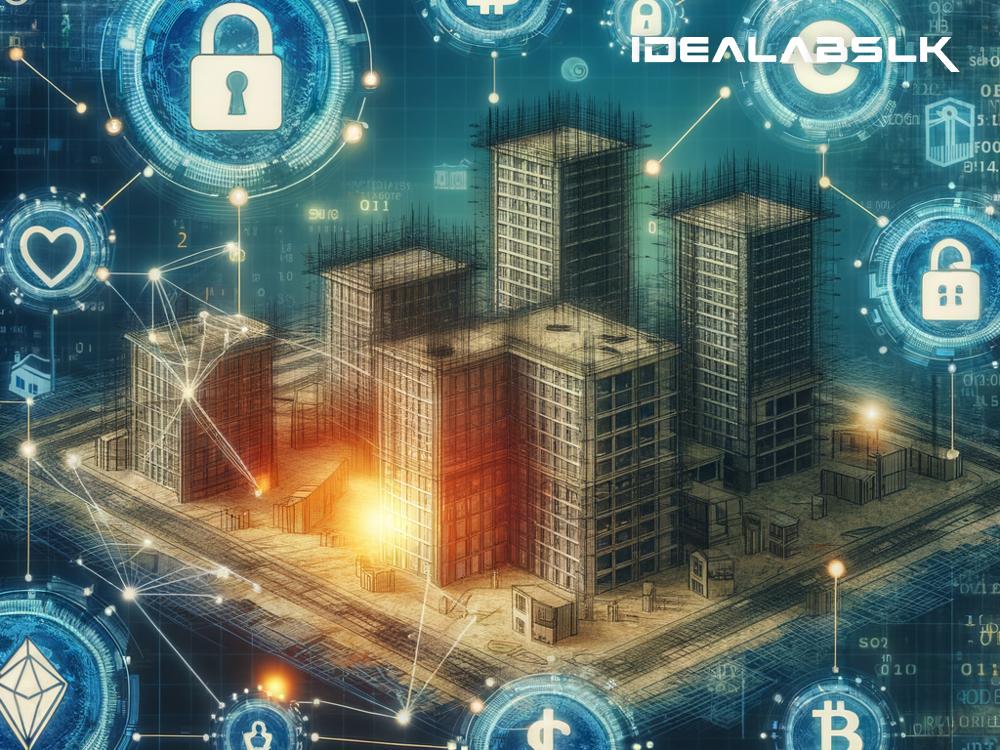Blockchain technology, often associated with cryptocurrencies like Bitcoin, is increasingly finding its way into various industries, revolutionizing how transactions are conducted. One such industry where blockchain holds immense potential is real estate development. The integration of blockchain technology promises to bring enhanced security, efficiency, and transparency to the complex processes involved in property development and transactions. In this post, we'll explore how blockchain can transform the real estate development sector, particularly enhancing security.
Understanding Blockchain in Simple Terms
Before diving into the specifics of how blockchain can benefit real estate development, let's first break down what blockchain technology is in simple terms. Imagine a digital ledger, similar to a spreadsheet, that’s shared among a network of computers. Every time a transaction occurs, it’s recorded in a "block" and added to a "chain" of previous transactions. Each block is connected to the ones before and after it, making it difficult to tamper with information without altering the entire chain. This characteristic makes blockchain incredibly secure and trustworthy.
The Challenge of Security in Real Estate Development
Real estate transactions, particularly in development projects, involve multiple stakeholders, including developers, investors, buyers, legal representatives, and government entities, among others. The complexity and the involvement of significant sums of money make the sector ripe for fraud and mismanagement. Fake property listings, forged documents, and fraudulent ownership claims are just a few security issues plaguing the industry. That's where blockchain comes in, offering a solution to bolster security and trust among all parties involved.
How Blockchain Enhances Security in Real Estate Development
1. Immutable Records
Blockchain’s most significant advantage is its immutable nature, meaning once a piece of information or transaction is recorded, it cannot be altered or deleted. This feature is pivotal in real estate development, where the accuracy of property records, contracts, and transaction history is paramount. With blockchain, all parties can trust that the property data and ownership information are accurate and unaltered, reducing the risk of fraud.
2. Transparency
Blockchain technology provides an unmatched level of transparency. Every transaction on the blockchain is visible to all parties who have access, ensuring that developers, buyers, and investors can trace every detail of the transaction process. This transparency helps build trust among stakeholders and can significantly reduce disputes and misunderstandings related to property development deals.
3. Smart Contracts
One of the transformative aspects of blockchain in real estate development is the use of smart contracts. These are self-executing contracts with the terms directly written into code. In the context of real estate, this means that once certain conditions are met, actions such as the transfer of property titles or release of funds can happen automatically without human intervention. This not only speeds up transactions but also minimizes the risk of fraud or manual errors.
4. Efficient Due Diligence
The due diligence process in real estate involves verifying the legal status, ownership history, and encumbrances on a property. Traditionally, this process is time-consuming and prone to errors. Blockchain can streamline due diligence by providing a transparent and tamper-proof database of property records, significantly cutting down the time and cost associated with property transactions.
5. Decentralization
At the heart of blockchain is its decentralized nature. Unlike traditional systems where a single entity controls the database, blockchain distributes the control among all participants. This decentralized architecture not only makes the system more resilient to cyber-attacks but also ensures that no single party can manipulate the records for fraudulent purposes.
Real-world Applications
In several parts of the world, forward-thinking companies and governments are already experimenting with blockchain for land registration, property investments, and funding real estate development projects. For instance, Sweden’s land registry authority has conducted trials for managing property transactions on a blockchain, aiming to increase efficiency and security. Similarly, platforms like Propy are using blockchain to allow global real estate transactions to occur online securely and transparently.
Conclusion
The potential of blockchain technology to revolutionize the real estate development industry is enormous. By offering a secure, transparent, and efficient platform for conducting transactions, blockchain can address many of the security challenges that have long plagued the sector. As this technology continues to evolve, we can anticipate more innovative applications that will further enhance the integrity and reliability of real estate transactions. The future of real estate development is undeniably intertwined with the advancements of blockchain technology, paving the way for a more secure, transparent, and efficient industry.

